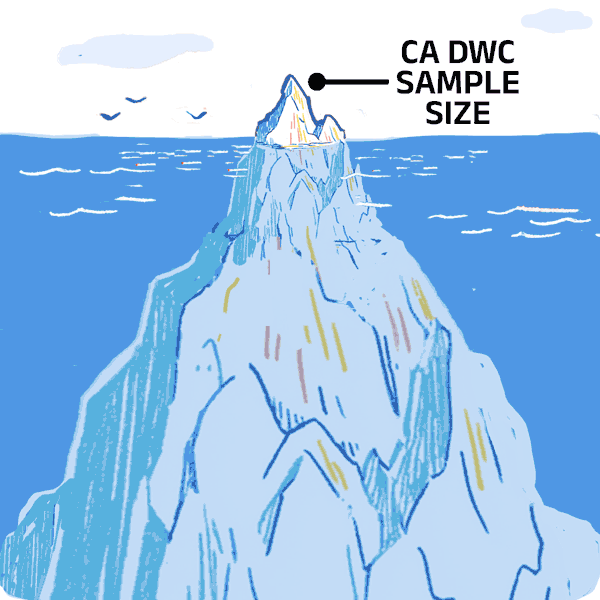Treatments That Do NOT Qualify for Automatic Authorization in Workers’ Comp

Automatic authorization for California workers’ comp is in effect, but not all treatments qualify.
In fact, the Division of Workers’ Compensation (DWC) has specifically barred certain treatments from automatic authorization. In these cases, the usual Request for Authorization (RFA) and prospective utilization review remains required — with some exceptions. Since many of our recent webinar attendees asked about specific services, we thought a review of ineligible treatments was in order.
Automatic authorization became effective January 1. Since then, we’ve helped readers and DaisyBill clients navigate the new rules, especially regarding eligibility and submission deadlines. At our recent webinar, attendees asked about everything from occupational therapy to cortisone injections, wondering whether each treatment made the cut.
6 Qualifying Conditions for Automatic Authorization
To review, for a treatment to qualify for automatic authorization, it must meet 6 qualifying conditions per the revised Labor Code § 4610:
- The date of injury is on or after 1/1/2018
- The date of treatment is within 30 days of the date of injury
- The claims administrator has accepted liability
- The treatment is addressed in the Medical Treatment Utilization Schedule (MTUS)
- The physician must be authorized as the predesignated physician or MPN provider
- The treatment must not be specifically excluded under LAB 4610
Of the six, numbers 4 and 6 specifically address the treatment in question. When considering a treatment’s eligibility, providers should first ask:
- Is the treatment addressed in the MTUS?
- Is the treatment listed as excluded under LAB 4610?
To be sure the treatment is included in the MTUS, providers can consult the DWC website’s MTUS page. As for the second question, below are the treatments specifically excluded from eligibility by the Labor Code.
Treatments Ineligible for Automatic Authorization
- Pharmaceuticals (unless expressly exempted from or authorized by the MTUS drug formulary)
- Non-emergency inpatient and outpatient surgery, including all presurgical and postsurgical services.
- Psychological treatment services.
- Home health care services.
- Imaging and radiology services, excluding X-rays.
- All durable medical equipment, whose combined total value exceeds two hundred fifty dollars ($250), as determined by the Official Medical Fee Schedule (OMFS).
- Electrodiagnostic medicine, including, but not limited to, electromyography and nerve conduction studies.
LAB 4610 also grants the DWC Administrative Director the right to exclude any other treatments from automatic authorization, at his discretion.
6 Important Exceptions
While the Labor Code expressly bars automatic authorization for the treatments listed above, those exclusions are subject to a few exceptions:
- First, as stated in LAB 4610, pharmaceuticals that are expressly exempted from or authorized by the MTUS drug formulary may qualify.
- While most imaging services are ineligible, X-rays may qualify.
- Durable Medical Equipment (DME), the combined value of which is less than $250 per the OMFS may also qualify.
- Any treatment authorized by the employer may qualify.
- Finally, any service rendered as an emergency treatment may qualify.
Like most things in workers’ compensation, automatic authorization is complicated. Be sure to know the rules, and stay informed of any changes as this new system evolves. As always, we’ll keep our readers up to speed.
For more information, download our free comprehensive webinar by clicking the button below:
Download Automatic Authorization Webinar
DaisyBill provides content as an insightful service to its readers and clients. It does not offer legal advice and cannot guarantee the accuracy or suitability of its content for a particular purpose.




.gif)